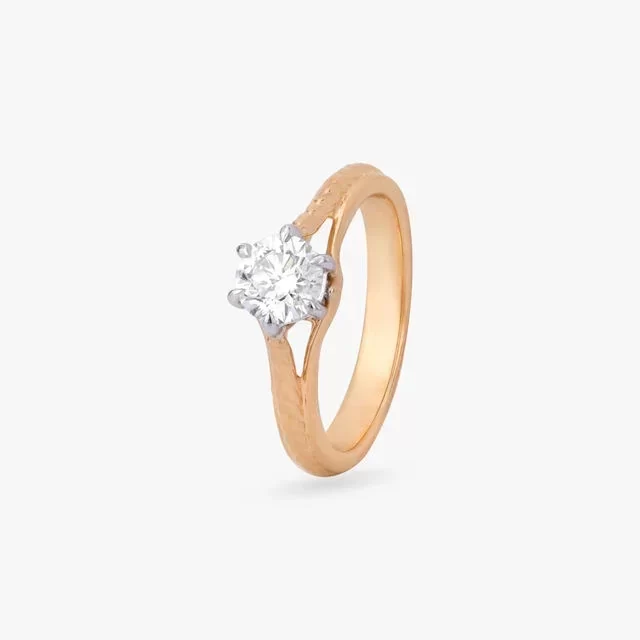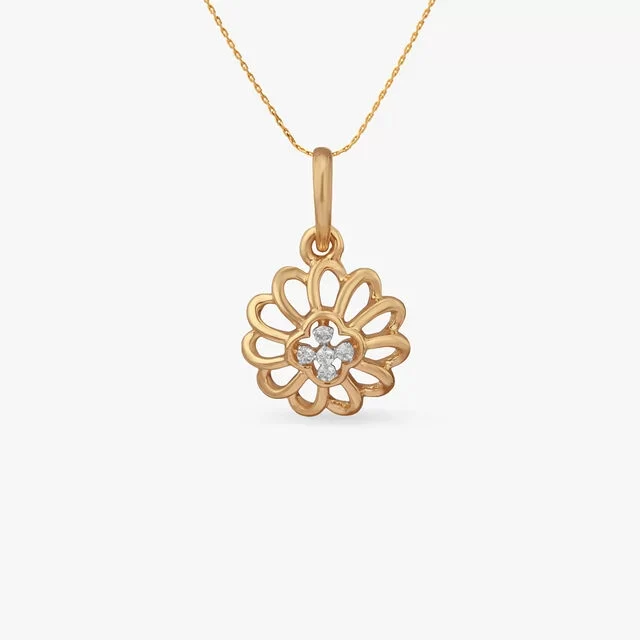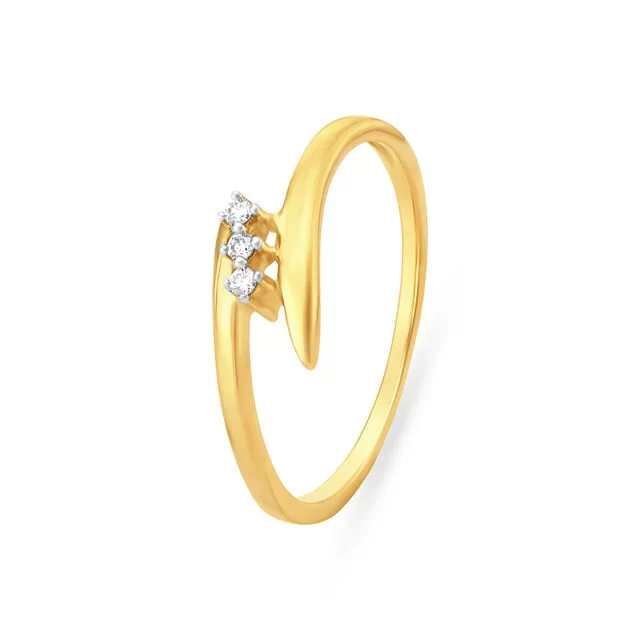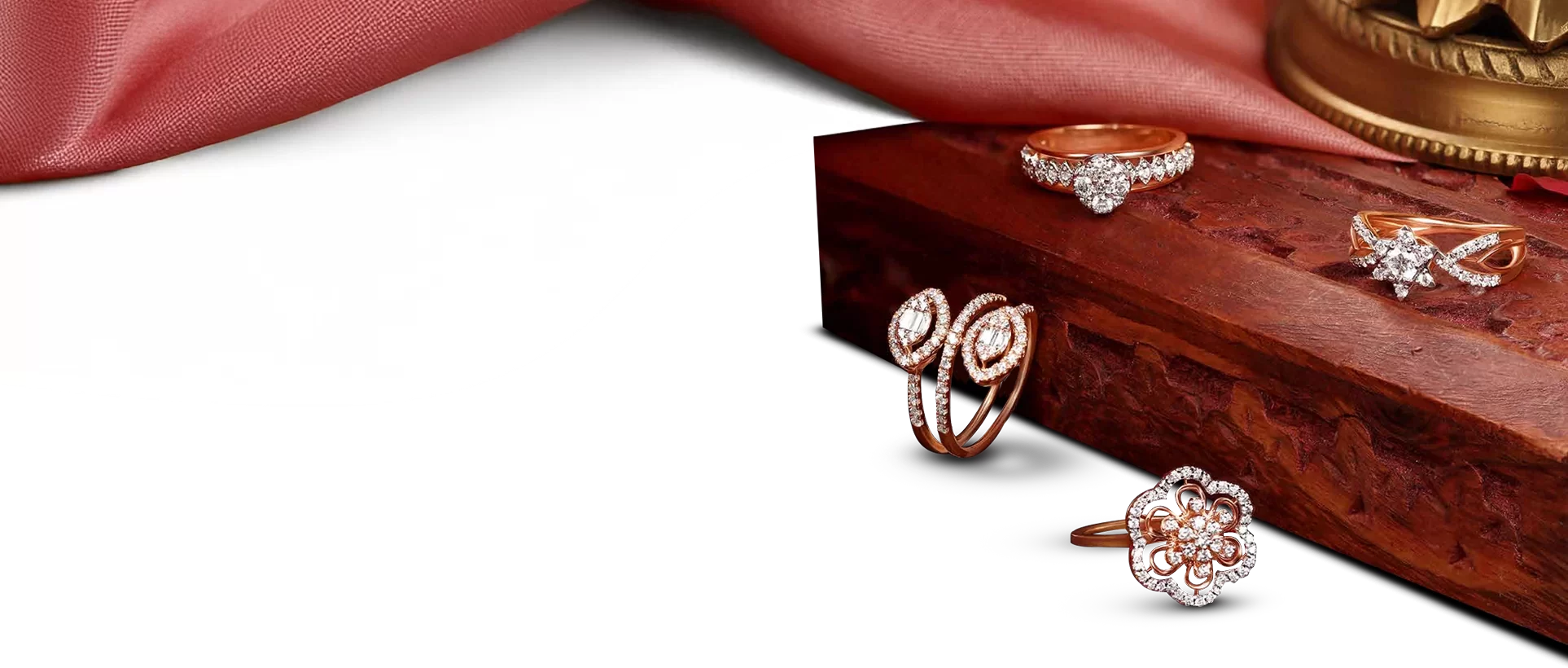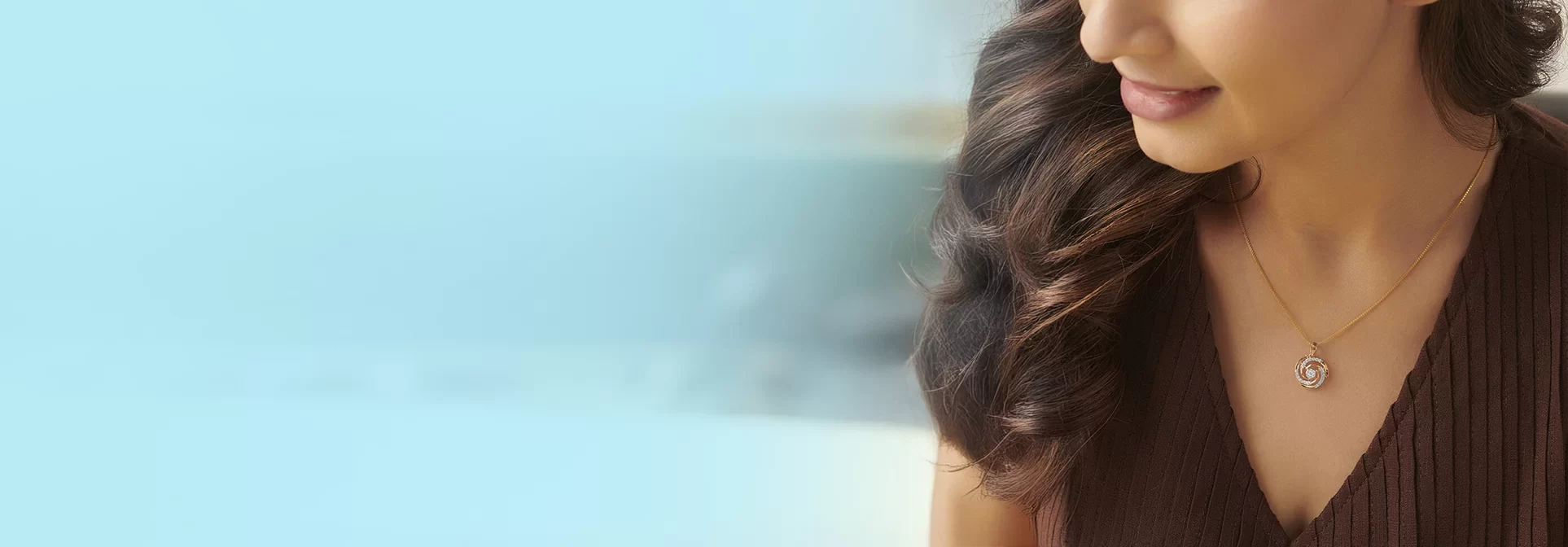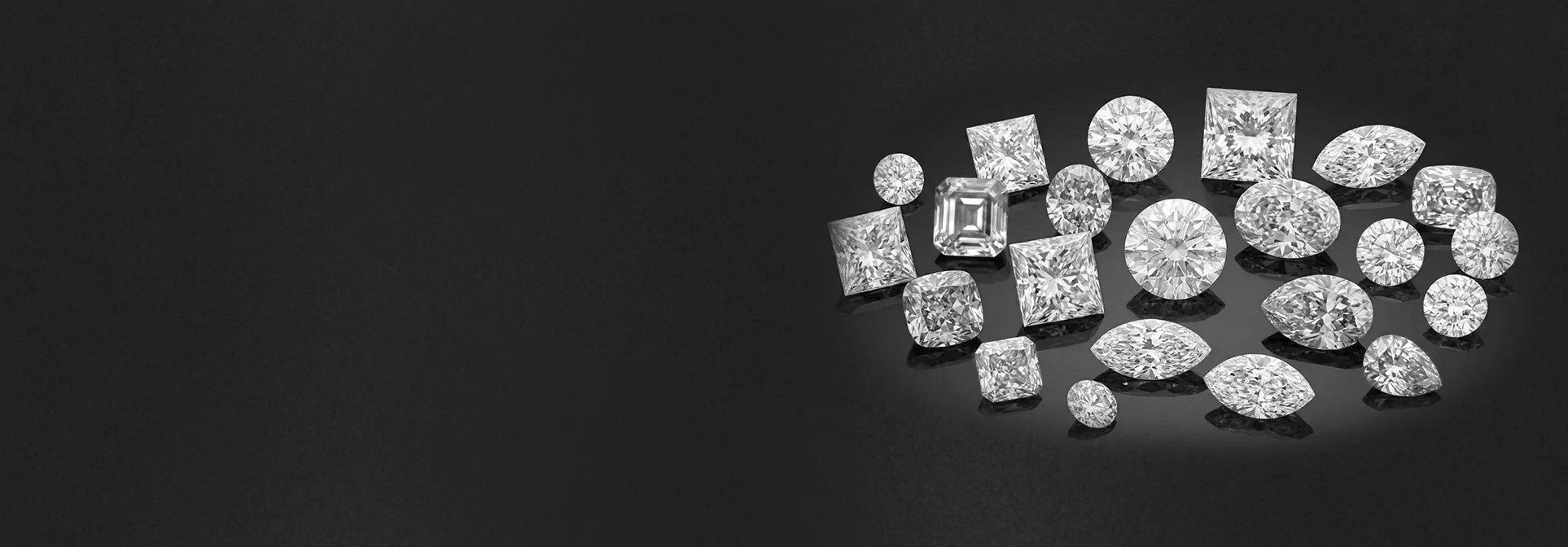When shopping for diamond jewellery, one always considers the right cut or its clarity, but often forgets the diamond setting. How a diamond is set impacts the jewellery’s aesthetic appeal to a great extent. From engagement rings to everyday pendants, the right diamond setting types not only secures your gem but also defines the overall look and personality of the piece. So if you’re shopping or simply curious, here’s your definitive guide to the most popular diamond setting types and how to pick your perfect one.
What a Diamond Setting Does
A diamond setting is the way in which a diamond is mounted or held onto a piece of jewellery. It affects everything from the security of the stone to how much it sparkles under light. Whether it’s a subtle stud or a dramatic diamond choker designs, the diamond setting plays a key role in the look and longevity of your jewellery.
How to Choose the Right Diamond Setting
Think of the diamond as your star performer. The diamond setting types act as stage lighting, sound, and spotlight all rolled into one. The diamond setting showcases your diamond while affecting light entry for more sparkle, comfort during wear, stone security, and cleaning ease. Consider lifestyle, occasion, and maintenance preferences carefully when selecting setting for diamond ring.
Popular Diamond Setting Types
- Solitaire Setting
Solitaire setting features single diamond elevated prominently. Harmony Spark Solitaire Ring highlights center stone elegantly.
- Prong Setting
The classic choice! A diamond prong setting uses tiny metal claws (usually 4 or 6) to hold the diamond in place. This prong setting allows maximum light to hit the diamond, boosting brilliance. Best for solitaire rings and classic pendants, when you want your diamond to be the star.
- Halo Setting
Halo setting surrounds center diamond with smaller stones. Blossom Halo Diamond Pendant amplifies sparkle dramatically.
- Pavé Setting
Small diamonds set closely together with tiny metal beads or prongs create diamond pave setting. A pave setting offers continuous sparkle surface – very glam! Best for statement rings, diamond chokers, and ultra-sparkly earrings.
- Bezel Setting
Modern and sleek, a diamond bezel setting encircles the diamond with a thin metal rim. Bezel setting offers maximum protection and contemporary look. Great for everyday rings and pendants needing durability.
- Three-Stone Setting
Three-stone setting symbolizes past, present, future. Three Stone Diamond Finger Ring balances three gems harmoniously.
- Channel Setting
Rows of diamonds placed between two metal strips form channel setting. No prongs – just clean lines. Channel setting suits mens diamond rings and eternity bands perfectly.
- Tension Setting
The diamond appears to float mid-air! Tension setting uses metal band pressure to hold diamond securely. Best for modern rings and minimalist jewellery lovers.
- Cluster Setting
Multiple diamonds grouped together create organic sparkle. Cluster setting offers vintage-inspired appeal affordably.
- Bar Setting
Bar setting uses vertical metal bars between diamonds for structured geometry. Best for contemporary designs adding definition.
How Settings Influence Diamond Appearance
Diamond setting types dramatically control how much light enters each diamond to maximize its brilliance and fire.
- The prong setting exposes maximum diamond facets to capture and reflect light from every angle beautifully.
- Bezel setting creates a smoother, more protective appearance while subtly embracing the gemstone securely.
- Pave setting transforms surfaces into continuous sparkling fields that catch every ray of light effortlessly.
Matching Setting to Diamond Shape
- Round brilliant diamonds shine brightest in classic diamond prong setting that showcases their legendary fire perfectly.
- Princess cut stones gain elegance through halo setting that frames their geometric beauty symmetrically.
- Emerald shape diamonds align beautifully with sleek channel setting following their rectangular lines naturally.
- Pear-shaped diamonds create dramatic allure through tension setting that highlights their teardrop elegance gracefully.
Pros & Cons of Each Setting Type
- Prong setting allows unmatched light performance but prongs can snag on clothing occasionally.
- Bezel setting provides superior protection yet covers portions of diamond brilliance slightly.
- Pave setting delivers continuous sparkle across surfaces but tiny beads require occasional maintenance.
- Tension setting offers strikingly modern appearance though resizing becomes more challenging later.
Tanishq Tips
- Choose half bezel setting for active lifestyles balancing security and sparkle perfectly.
- Layer bar setting bands with smooth diamond bezel setting pieces elegantly.
Lifestyle Tips: Which Setting for You
- Active professionals prefer diamond bezel setting durability for daily wear confidence.
- Office workers appreciate low-maintenance channel setting that stays pristine effortlessly.
- Party-goers choose sparkling diamond pave setting for maximum evening impact.
- Minimalists select clean tension setting lines for sophisticated simplicity.
Diamond Setting Types for Engagement Rings
Setting for diamond ring defines proposal symbolism beautifully and memorably. Solitaire setting delivers timeless tradition every bride recognizes instantly. Halo setting amplifies center stone romantically for added drama. Three-stone setting represents enduring commitment through past, present, and future symbolism.
How Metal Choice Affects Diamond Settings
Yellow gold warms prong setting with classic vintage charm everyone loves.
White gold brightens pave setting diamonds with contemporary crispness perfectly.
Platinum secures tension setting mechanisms with unmatched durability over decades.
Rose gold softens bezel setting edges romantically for blush-toned elegance.
Tanishq Tip:
Match rose gold half bezel setting with pink-toned diamonds for harmonious blush elegance.
Conclusion
Choosing the right diamond setting involves lifestyle, comfort, and sparkle preferences thoughtfully. Love timeless appeal? Select prong setting. Prefer modern maintenance? Try diamond bezel setting. Crave continuous glimmer? Pave setting delivers perfectly. Explore Tanishq’s crafted collection featuring every diamond setting types.
Frequently Asked Questions
Four prongs suit smaller stones, while six secure larger diamonds firmly.
Professional settings hold firmly but require periodic checks.
Use soft brush with mild soap avoiding ultrasonic cleaners.

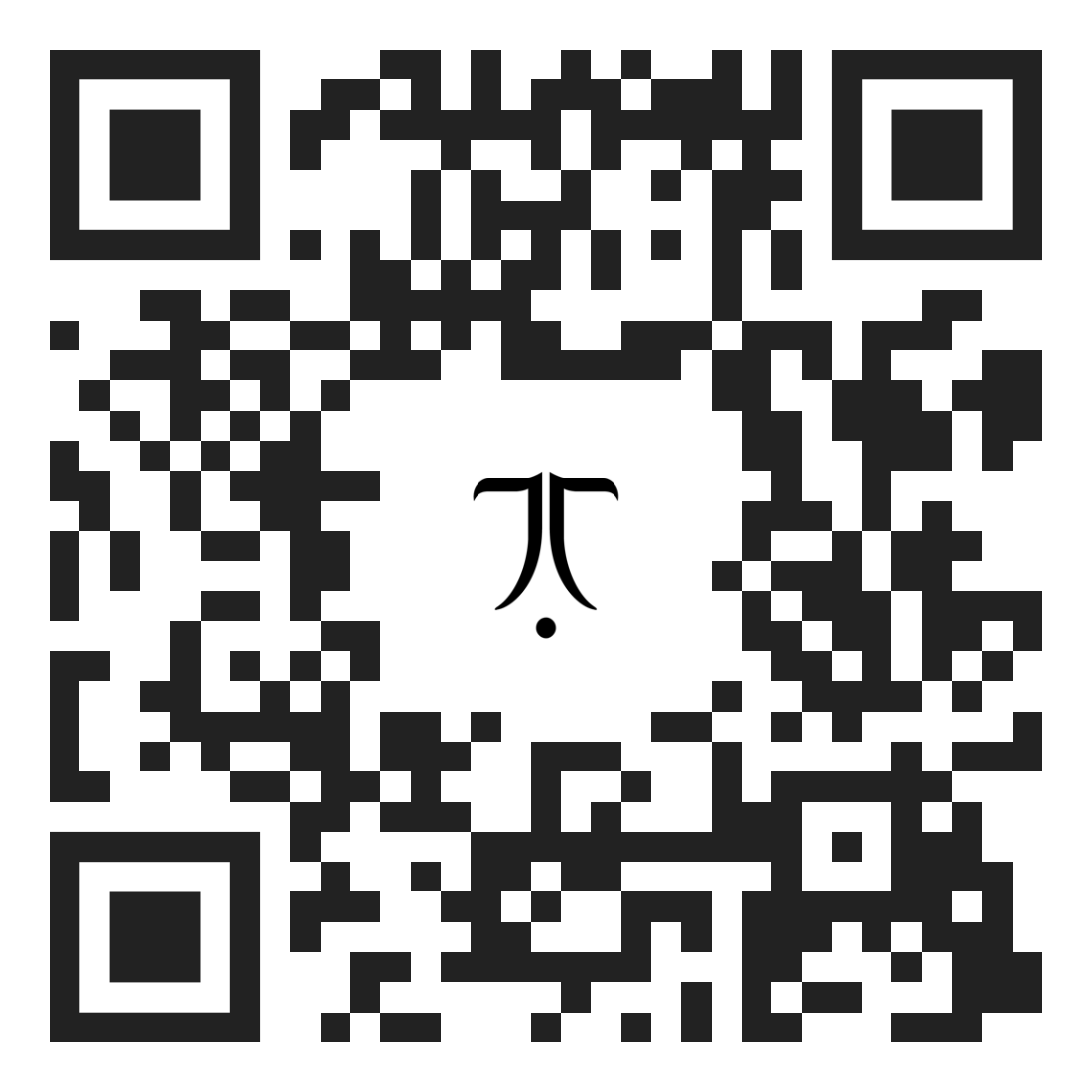 GET THE APP
GET THE APP



